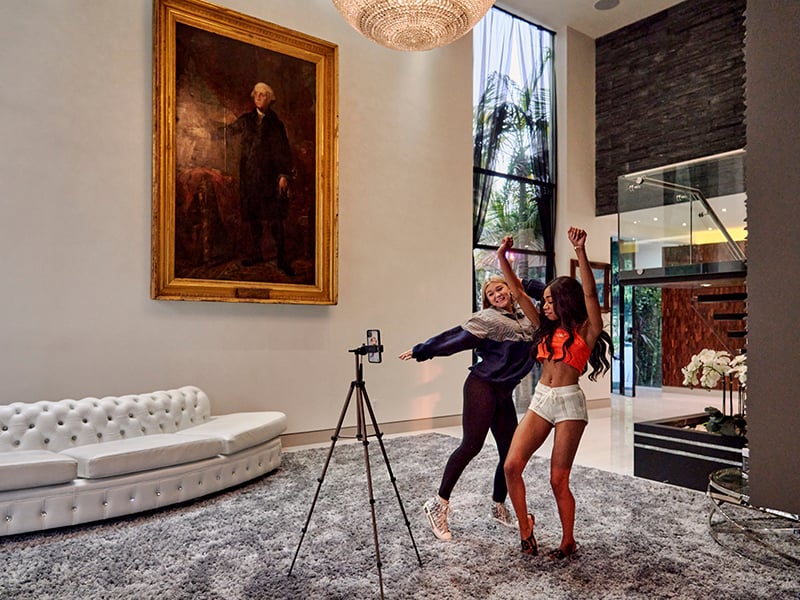Alapfogalmak
The author delves into the world of influencers to reveal the stark reality behind their glamorous facade, shedding light on the challenges and uncertainties they face in their pursuit of fame and fortune.
Kivonat
The content explores the lives of influencers at Clubhouse For the Boys, revealing their struggles with maintaining authenticity, handling fame, and navigating the pressures of social media. From financial incentives to creative commitments, the influencers' daily routines and aspirations are dissected, highlighting a world where self-promotion blurs with personal identity. The narrative captures a poignant reflection on societal standards, brand endorsements, and the existential crisis faced by both influencers and traditional professionals in an increasingly digital age.
Összefoglaló testreszabása
Átírás mesterséges intelligenciával
Hivatkozások generálása
Forrás fordítása
Egy másik nyelvre
Gondolattérkép létrehozása
a forrásanyagból
Forrás megtekintése
harpers.org
The Anxiety of Influencers, by Barrett Swanson
Statisztikák
Christopher Romero was paid $14,000 for a TikTok video.
Chris Sutherland has two million followers on TikTok.
The Creator Marketplace lists Meghan McCarthy with 3.7 million followers.
Brandon is nineteen years old.
Idézetek
"College can wait. I can always go when I’m like thirty." - Christopher
"People don’t realize that this industry is a really big commitment." - Brandon Westenberg
"I feel like I’m literally a walking art piece." - Gio Valencia
Főbb Kivonatok
by Barrett Swan... : harpers.org 03-04-2024
https://harpers.org/archive/2021/06/tiktok-house-collab-house-the-anxiety-of-influencers/?utm_source=linnk.ai
Mélyebb kérdések
How do influencers balance personal authenticity with brand expectations?
Influencers often face a delicate balancing act between maintaining personal authenticity and meeting the expectations set by brands. On one hand, their followers expect genuine content that resonates with them on a personal level, leading to increased engagement and loyalty. However, brands typically have specific guidelines and objectives that influencers must adhere to when creating sponsored content. This can sometimes lead to a conflict between staying true to oneself and fulfilling brand requirements.
To navigate this challenge, influencers often try to find a middle ground where they incorporate brand messaging into their authentic voice and style. They may choose partnerships with brands that align closely with their values and interests, making it easier to create content that feels genuine. Additionally, some influencers establish clear boundaries regarding the type of sponsorships they accept or the way in which they integrate branded content into their feed.
Ultimately, successful influencers are those who can strike a balance between showcasing their unique personality while also satisfying the demands of brand collaborations.
How does social media impact shaping societal standards?
Social media plays a significant role in shaping societal standards by influencing perceptions of beauty, success, relationships, and more. Platforms like TikTok provide an idealized version of reality through curated posts and filtered images, setting unrealistic benchmarks for individuals in terms of appearance or lifestyle choices. This constant exposure to carefully crafted content can lead to feelings of inadequacy or low self-esteem among users who compare themselves unfavorably against these standards.
Moreover, social media platforms amplify certain trends or behaviors by promoting viral challenges or popular hashtags that quickly gain traction among users. These trends can influence how people dress, communicate, or even think about particular issues based on what is deemed popular within the online community.
Additionally, social media allows for rapid dissemination of information and ideas across diverse audiences at an unprecedented speed. This means that societal norms can evolve rapidly as new concepts gain widespread acceptance through viral posts or influential accounts advocating for change.
Overall, social media has a profound impact on shaping societal standards by presenting idealized versions of life while also facilitating rapid shifts in cultural norms based on online interactions.
How does the influencer economy reflect broader trends in modern society?
The influencer economy reflects broader trends in modern society by highlighting key aspects such as individual branding, digital marketing strategies, consumer behavior shifts towards online platforms.
Influencers essentially function as micro-entrepreneurs building personal brands around themselves - leveraging their personalities & lifestyles for monetization opportunities through sponsored content deals & affiliate marketing.
This trend mirrors larger economic shifts towards gig-based work models & self-promotion tactics prevalent in today's job market.
Moreover,the influencer economy showcases how traditional advertising methods have evolved due to changing consumer habits - preferring authentic endorsements from relatable figures over traditional celebrity endorsements.
Furthermore,the rise of influencer culture underscores society's increasing reliance on digital platforms for entertainment,social interaction,& shopping experiences - reflecting our growing dependence on technology & virtual connections.
Overall,the influencer economy serves as both a reflection&driverof contemporary socio-economic dynamics,presenting insights into evolving notions surrounding fame,career paths,& commercial transactionsinthe digital age
0
